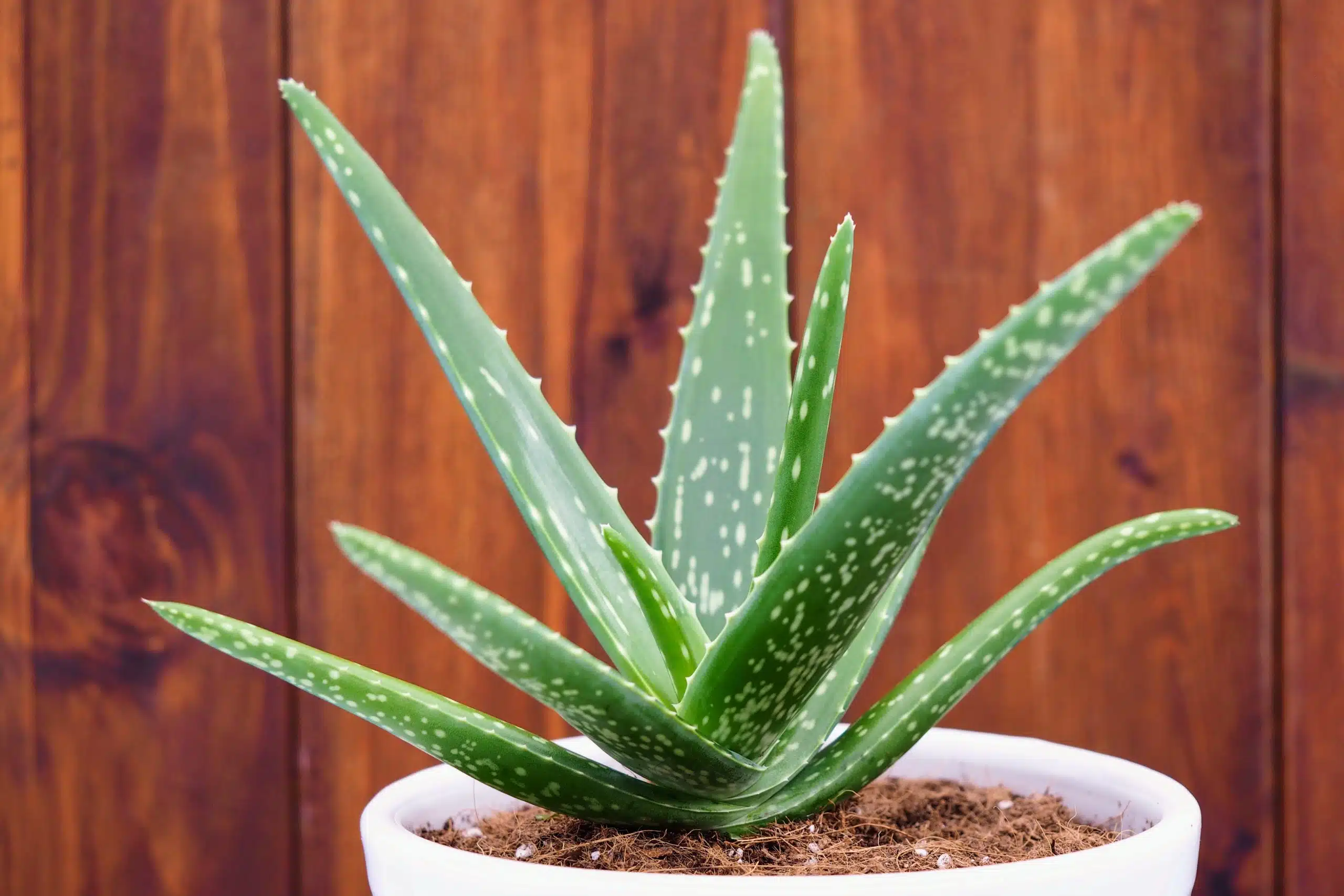Aloe Vera

Quick Facts
- Scientific Name: Aloe barbadensis miller
- Average Lifespan: 5–25 years
- Native To: Arabian Peninsula, widely cultivated in India
- Commonly Found In: Rajasthan, Gujarat, Maharashtra, Tamil Nadu, and Andhra Pradesh
- Growth Habit: Succulent, perennial plant
- Uses: Ayurveda, skincare, digestive health, wound healing
Overview
Aloe vera is a well-known medicinal plant used for centuries in Ayurveda and traditional medicine for its healing and nourishing properties. Recognized for its thick, fleshy leaves filled with gel, Aloe vera is widely used in skincare, haircare, digestion, and immunity-boosting remedies. It is commonly grown in home gardens and commercial farms due to its ease of cultivation and multiple benefits.
Botanical Characteristics
Aloe vera is a short-stemmed succulent with thick, green, spiky leaves containing a translucent gel. The gel is rich in vitamins, minerals, enzymes, and amino acids, making it highly beneficial for both internal and external use. The plant produces yellow or orange tubular flowers and thrives in warm, dry climates with well-drained soil.
Uses in Ayurveda and Traditional Medicine
Aloe vera is classified as a "Ghrita-kumari" in Ayurveda and is known for its cooling, rejuvenating, and healing effects. It is widely used for:
- Skin and Hair Care: Aloe vera gel hydrates the skin, reduces acne, soothes sunburns, and prevents hair fall and dandruff.
- Digestive Health: The plant's juice helps in treating acidity, constipation, and irritable bowel syndrome (IBS).
- Immunity and Detoxification: Aloe vera is rich in antioxidants, which help detoxify the body and improve overall immunity.
- Wound Healing: Its antibacterial and anti-inflammatory properties aid in healing cuts, burns, and insect bites.
- Diabetes Management: Aloe vera is known to help regulate blood sugar levels when consumed in moderation.
Scientific and Modern Applications
Aloe vera is extensively used in the cosmetic, pharmaceutical, and food industries. Its extracts are found in skincare products, herbal medicines, and health drinks. Research has confirmed its anti-inflammatory, antibacterial, and antioxidant properties, making it a key ingredient in modern healthcare.
Cultivation and Conservation
Aloe vera requires minimal water and thrives in arid and semi-arid conditions. It is widely cultivated in India due to its commercial demand in Ayurveda, cosmetics, and wellness industries. The plant is easy to grow in pots and gardens, making it a common household medicinal plant.